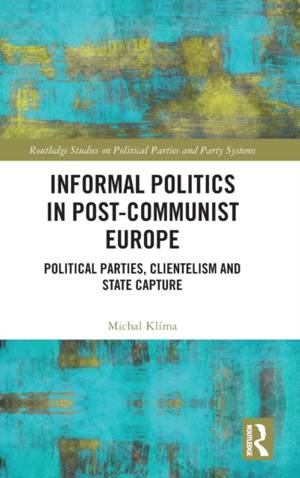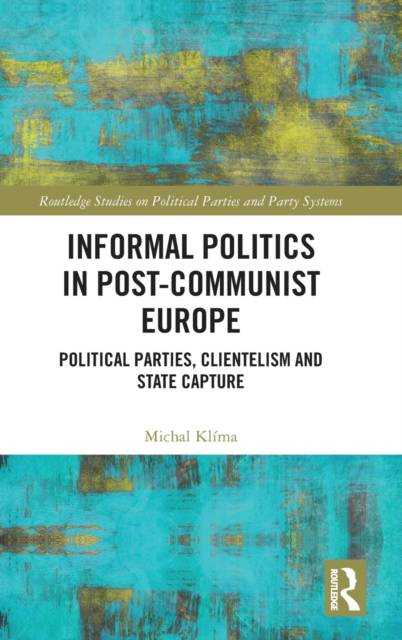
- Retrait gratuit dans votre magasin Club
- 7.000.000 titres dans notre catalogue
- Payer en toute sécurité
- Toujours un magasin près de chez vous
- Retrait gratuit dans votre magasin Club
- 7.000.0000 titres dans notre catalogue
- Payer en toute sécurité
- Toujours un magasin près de chez vous
Informal Politics in Post-Communist Europe
Political Parties, Clientelism and State Capture
Michal KlímaDescription
This book offers a fascinating, thought-provoking and ground-breaking study of post-communist political life. It is published just as the countries of Central and Eastern Europe mark thirty years since gaining freedom and have embarked on the path of democracy.
This book is one of the first full-length academic works to explore the question of how informal structures, headed by bosses, godfathers and oligarchs, affect formal party politics and democracy. The unique post-communist transition is observed as a specific historical moment of disorder, offering a window of opportunity for the large-scale exploitation of public resources in the sense of a kind of "Klondike Gold Rush." Phenomena of corruption, clientelism, patronage, party capture and state capture are topical themes that are deeply explored.
This text will be of key interest to scholars and students of Central and Eastern European politics, democratisation, transitional societies, clientelism, party systems and more broadly of comparative and European politics.
Spécifications
Parties prenantes
- Auteur(s) :
- Editeur:
Contenu
- Nombre de pages :
- 202
- Langue:
- Anglais
- Collection :
Caractéristiques
- EAN:
- 9781138572492
- Date de parution :
- 20-09-19
- Format:
- Livre relié
- Format numérique:
- Genaaid
- Dimensions :
- 160 mm x 236 mm
- Poids :
- 453 g

Les avis
Nous publions uniquement les avis qui respectent les conditions requises. Consultez nos conditions pour les avis.






